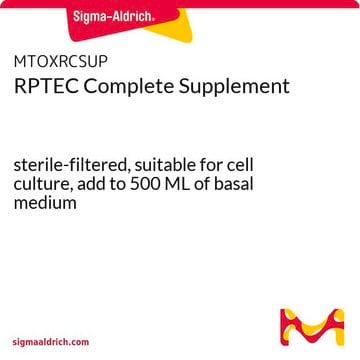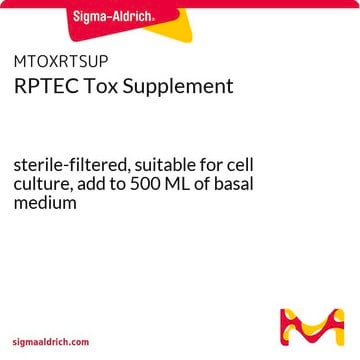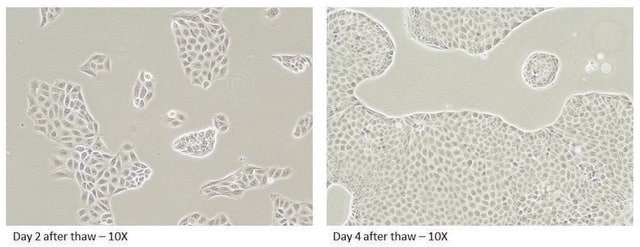MTOX1030
Kidney PTEC Control Cell (SA7K Clone)
Sinónimos:
RPTEC SA7K control cell line
About This Item
Productos recomendados
biological source
human female renal (proximal convoluted tubule epithelial cells)
description
1 vial
form
liquid
storage temp.
−196°C
General description
Application
RPTEC SA7K control cells can also be used to measure compound uptake/efflux by transporters using inhibitors. Precision editing in RPTEC SA7K transporter KO cells provides a more predictive platform for compound uptake/efflux by transporters without the need for non-specific inhibitors.
RPTEC SA7K cells have been validated for use on the Mimetas 3-lane OrganoPlate® in both toxicity and barrier integrity assays ( Z742750).
RPTEC SA7K cells can also be used on the AIM Biotech 3D cell culture chip in toxicity and permeability assays ( DAX01).
Features and Benefits
Quality
Legal Information
Disclaimer
related product
Storage Class
10 - Combustible liquids
wgk_germany
WGK 3
flash_point_f
Not applicable
flash_point_c
Not applicable
Certificados de análisis (COA)
Busque Certificados de análisis (COA) introduciendo el número de lote del producto. Los números de lote se encuentran en la etiqueta del producto después de las palabras «Lot» o «Batch»
¿Ya tiene este producto?
Encuentre la documentación para los productos que ha comprado recientemente en la Biblioteca de documentos.
Los clientes también vieron
Artículos
AIM Biotech's modular platform enables simple to complex 3D cell culture for various research needs.
AIM Biotech's modular platform enables simple to complex 3D cell culture for various research needs.
AIM Biotech's modular platform enables simple to complex 3D cell culture for various research needs.
AIM Biotech's modular platform enables simple to complex 3D cell culture for various research needs.
Nuestro equipo de científicos tiene experiencia en todas las áreas de investigación: Ciencias de la vida, Ciencia de los materiales, Síntesis química, Cromatografía, Analítica y muchas otras.
Póngase en contacto con el Servicio técnico












